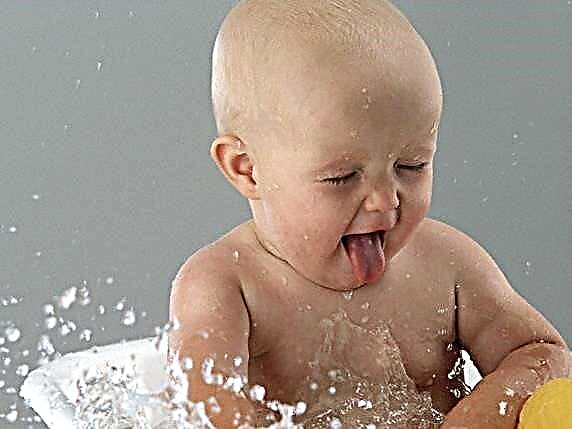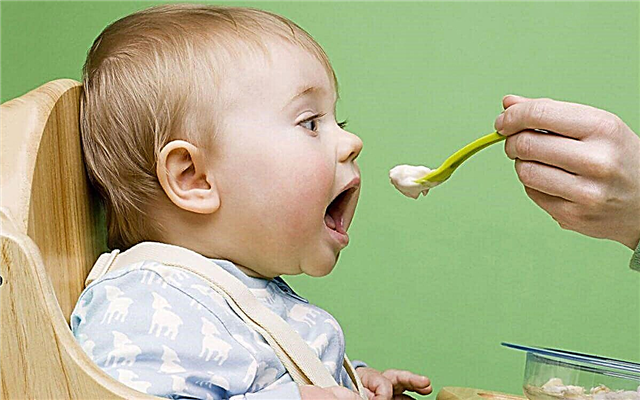How often, in a fit of anger, parents say words to their children that penetrate deeply into the mind, hurt, leaving a trace there for many years. As a result of the wrong actions of adults, the child becomes aggressive, his self-esteem decreases, and his parents cease to be an authority for him. How to avoid this? Let's look at 7 mistakes that adults make when fighting with their children, and then try not to repeat them.

1. Focusing on personality, not on actions
When a kid does wrong, parents often tell him that he is bad, they say phrases like "I don't need such a child!" or "You are a terrible boy!" With such statements, moms and dads hurt their children. It is important that the baby understands that it is not he himself that is bad, but the act he has done that causes disapproval of the parents.
2. Shifting the blame on children
Sometimes, during times of strong irritation, parents start scolding their children for what, in fact, they are not to blame. For example, a mother forgot to remove a plate or a cup from the table, and the baby, running past, touched her, she fell and broke. Or another case - dad allowed to pet a neighbor's dog, and he bit the baby. And so dad scolds the child - don't you know that a dog can bite? Who is to blame in this case? Is it a child? Why should he be scolded or punished? Shifting the blame from themselves to their children, parents will be able to achieve only one thing - over time, their child will do the same, he will not admit his mistakes. I think everyone will remember a situation when you have to scold yourself, and we scold the child.
3. Demonstrating your superiority

Adults often demonstrate their own superiority to their children, which makes them feel inferior and humiliated, annoyed and resentful. This can be illustrated by the example of such a situation when one of the parents, taking the toy away from the child, puts it on the closet or where the child cannot get it himself. What happens to the child at this time? He is in despair, he feels his own powerlessness and deep resentment, he starts a real hysteria. You need to help the baby cope with his feelings, and the parents aggravate the situation even more, leaving him alone so that he thinks over his behavior.
4. Punishment by deprivation of material wealth
[sc name = ”rsa”]
Do you use this technique - by promising to buy a toy for your son or daughter, you take your words back if the child misbehaved? Most parents do this to gain obedience from their children. But is it right? Undoubtedly, this method helps to quickly put children in their place, but what prompts them to obey - do they think about the feelings of the father and mother? No, in this situation, the child is only concerned about his own benefits. When he gets older, he will understand that it is better to please his parents, so as not to be deprived of material wealth, and not out of respect for his elders. At the same time, the teenager will accumulate his own feelings, resentment, anger and irritation inside himself. Never punish children by depriving them of material things, but teach them to respect your feelings, explain why you need to do this and not otherwise.
5. Aggression, rudeness, physical punishment

If, during a quarrel with a child, mom or dad lose control over themselves, make rude statements, shout, use force to educate, then the children adopt their way of acting. They learn from their parents that in a critical situation, the loss of control over themselves is the norm, that the one who is stronger, who shouts louder and speaks more rudely, is right. While the child is small, it seems that such educational measures work, but in fact, the baby is simply afraid of the parents' reaction, so he behaves well. Small children cannot fight back adults - hitting, shouting, but when they grow up, you should expect a similar rebuff from them.
6. Demand an apology when the parents themselves don't
To teach children something, you need to set them by example. Parents will not be able to instill in their child the habit of asking for forgiveness for their actions if they themselves do not do it. Situations happen to everyone when, under the influence of fatigue or irritation, we can utter a bunch of hurtful words to children. After the quarrel, we regret what we said, so why not tell your daughter or son: "Forgive me, I said hurtful words to you, in fact I don't think so about you." What will follow this? Usually kids also apologize for bad behavior by hugging their parents. Ask for forgiveness even when both sides are to blame, do it first so that the children follow your example.
To be honest, I myself sometimes break down and say hurtful words to my daughter, which I later regret. But I always try to apologize for them. I say to my daughter: “Forgive me, please. I got angry and told you not at all what I really think. ”My daughter usually apologizes at this moment too:“ Mom, and you forgive me. I was so capricious and misbehaved. It was unpleasant for you. Will you excuse me? " And we usually hug.
In situations where we were both good, I usually apologize first. And at the same time I do not reproach my daughter, I do not say that she was also wrong. The daughter herself already admits her part of the guilt in such situations and asks for forgiveness.
7. Use of humiliating punishments
When the kid is guilty, he is punished, but this must be done correctly. When applying educational measures, use the rule - it is better to deprive a child of what is good than to make him bad. For example, it is better to refuse a kid watching cartoons or reading at night than to raise his voice and spank. Remember - you cannot humiliate a child by punishing him, so never scold children in the presence of strangers. If you are in a crowded place, and the baby is behaving very badly, either put off parenting for later, or step aside and talk to him quietly.
- 8 loyal ways to punish children. How to properly punish a child for disobedience
- Do I need to punish a child at 3 years old: the opinion of parents and a psychologist
Many mistakes can be made in raising children, because we are all human. A simple rule that helps to reduce the number of conflict situations is great - before you say something to children, tell yourself it. When the situation heats up, scroll this phrase in your head, it will help you stop at the right moment, and therefore avoid mistakes. By applying this rule, you will notice that children will begin to show respect, their self-esteem will increase, they will begin to control their words.




